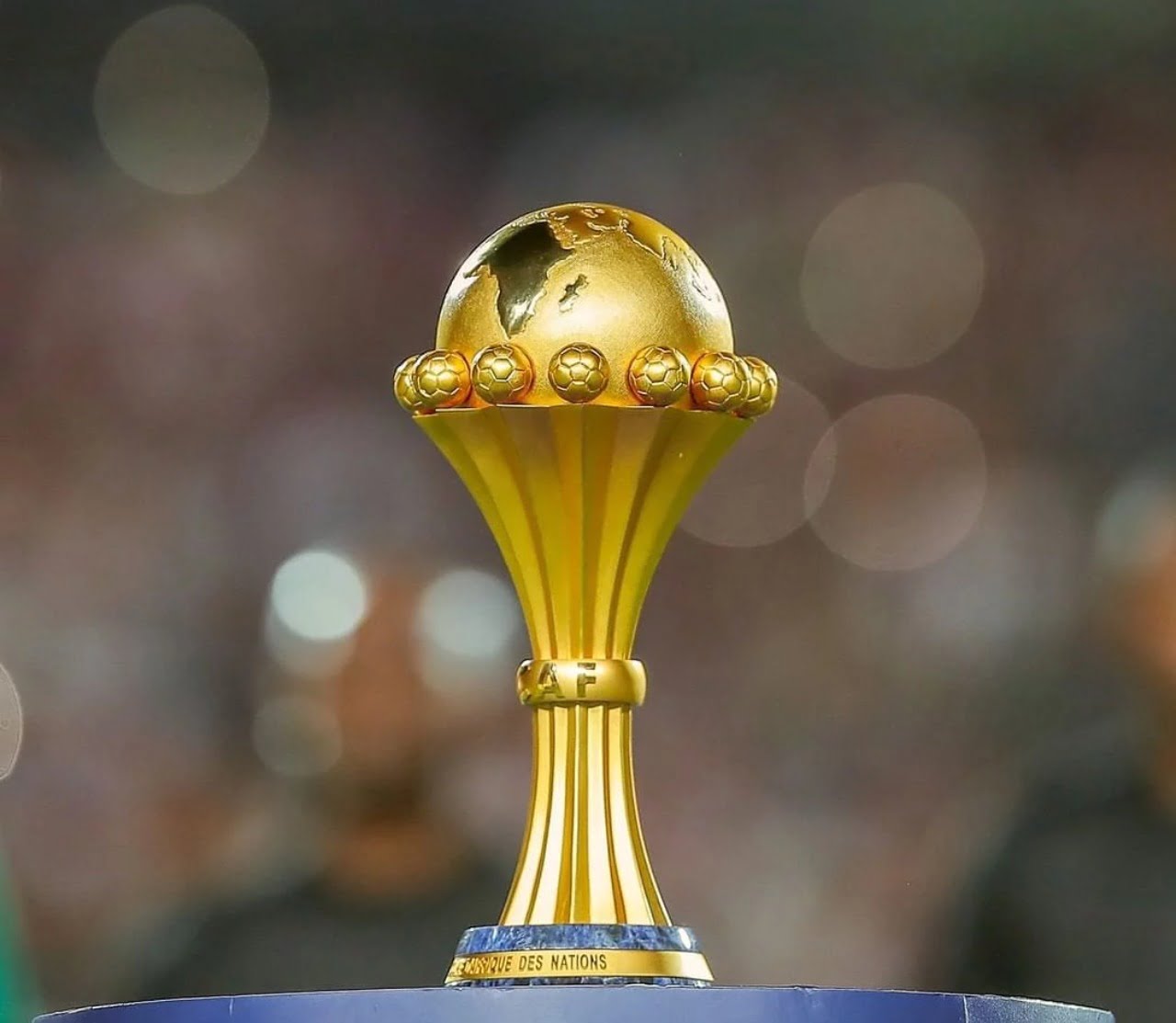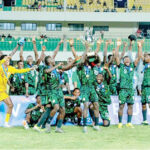With the full trappings of high drama and frenzied expectations, the final match of the 2022 African Cup of Nations (tagged AFCON 2021) came to a most interesting close last Sunday as Senegal defeated Egypt 4-2 in a penalties shoot-out to lift the coveted continental soccer trophy. The penalties followed a gruelling contest over full and extra time that ended in a goalless draw.
This 33rd edition of the tournament which was hosted by Cameroon, lasted from January 9 – February 6, 2022, and featured the 24 teams that qualified through preliminary group stage tournaments played earlier. Among the highlights of the tournament was a seemingly personal tussle for superiority by two of Africa’s best footballers of the moment – Mohamed Sallah of Egypt and Sadio Mane of Senegal. Both currently play for Liverpool Football Club in England but had to face each other playing for their respective countries. Eventually, Mane and Senegal carried the day.
- EU donates 2m Johnson & Johnson COVID-19 vaccines to Nigeria
- Electoral bill: I’ll advise Buhari against assent if… – Malami
Nigeria had unceremoniously crashed out earlier at the first knockout stage through a 1-0 defeat by Tunisia.
We commend Cameroon for successfully hosting the tournament despite the challenges of COVID-19. We also commend the various players who showed up for their countries amidst resistance from their clubs. Apart from the football, there was also the rich display of African culture which was worth showing to the world. And as usual, the tournament proved itself as a unifying factor as Africans came out in their numbers, either physically or on social media platforms, to support their teams.
With the tournament over and winners as well as losers returning home to celebrate or rue over their fortunes or otherwise, not a few Nigerians have continued to lament the dismal state of football in the country, as was demonstrated in the country’s outing at AFCON. Media reports indicate that not a few Nigerians rained expletives on the players over the poor outing by the country and the unimpressive exit it suffered. Nigeria had started on a promising note, having qualified as one of the final 24 teams and even progressed to lead Group D, comprising Egypt, Sudan and Guinea Bissau, with nine points from three matches.
However, it crashed out at the Round of 16 knock-out stage through a lone goal defeat by Tunisia, a country ranked 30th in the world on FIFA rankings; 6 spaces above Nigeria. Still, the manner of Nigeria’s exit was seen by many Nigerians as leaving much to be desired.
Against the popularity of football in Nigeria and its role as the most unifying factor in the country, the early exit of the country from the AFCON 2021 tournament attracted sharp reactions from sundry quarters, over the remote and proximate causes of the sad development. While it would be presumptuous to expect the country to win every football tournament, AFCON is largely seen by Nigerians as one tournament in which the country should give a good account of itself at any stage.
Indeed, some observers have noted that the country’s poor outing during the tournament could have had a bearing with the sack by the Nigeria Football Federation (NFF) of the former coach, only weeks to the commencement of the tournament, Gernot Rohr and the appointment of a new foreign one Jose Peseiro, who would take over after AFCON 2021. To fill in the gap, the NFF appointed Nigeria’s ex-international Austen Eguavon as interim coach for the continental tournament. This is precisely why many Nigerians have accused the NFF of not at all being prepared for the tournament, and therefore, was destined to early return, regardless of the initial brilliance of the team in the first three group-stage games.
Furthermore, and as has been pointed out on several occasions, Nigeria’s rather poor fortunes in local and international football tournaments in particular and sports development, in general, arise from the low premium we place on sports development and our perennial lack of early preparations for tournaments. Sporting activities all over the world are driven by the spirit and ethos of fair play and competitiveness. This calls for effective development strategies and commitment to preparedness. Yet this is an area where the country’s sports development regime demonstrates significant weaknesses.
The result is that Nigeria has often had to rely largely on foreign-based Nigerian sporting assets to represent it in topical tournaments, often even without significant government support. This is a critical indictment of the country’s sports development regime. Therefore, we call on the NFF, the Sports ministry, the federal and state governments to take football development—and sports more generally—more seriously and build from the ground up for the future.

 Join Daily Trust WhatsApp Community For Quick Access To News and Happenings Around You.
Join Daily Trust WhatsApp Community For Quick Access To News and Happenings Around You.


